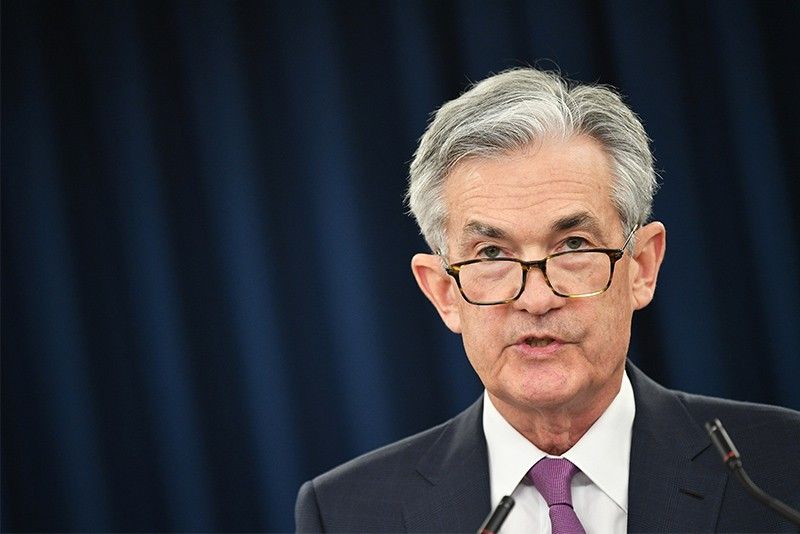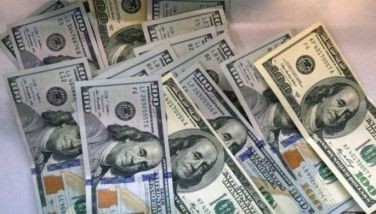US Federal Reserve leaves key rate unchanged amid mixed economic signals

WASHINGTON — The US Federal Reserve decided Wednesday to keep its benchmark interest rate unchanged amid mixed signals about the direction of the US economy.
But Fed Chair Jerome Powell seemed to tamp down growing expectations that officials might lean towards a rate cut, something President Donald Trump has demanded of the independent central bank.
After raising the key lending rate four times last year, the Fed voted unanimously to keep it in a range of 2.25-2.5 percent.
Conflicting economic data has complicated the Fed's decision-making. While the central bank noted the continued "strong labor market" and "solid" gains in economic activity, it also highlighted a slowdown in investment by businesses and households as well as weak inflation, which has fallen further below the Fed's two percent target to around 1.6 percent.
Asked whether there was a case building to cut rates to push the price measure closer to the target, Powell told reporters factors that "appear to be transient or idiosyncratic," such as apparel and airfares, likely are behind the low inflation rate, adding that central bankers are "comfortable" about policy at the moment.
"We think that our policy stance is appropriate at the moment. And we don't see a strong case for moving in either direction," he said, but added policymakers will be "watching inflation carefully."
In his latest Twitter attack on Tuesday, Trump slammed the Fed for "incessantly" raising interest rates despite low inflation, and called on officials to cut the rate by a full percentage point.
Those attacks have left the institution open to concerns it might bow to political pressure. But Powell dismissed those fears as he has done repeatedly.
"We don't think about short term political considerations, we don't discuss them and we don't consider them in making our decisions one way or the other," he said.
The statement by the rate-setting Federal Open Market Committee offered just a few key changes of language.
Data since the March policy meeting show "the labor market remains strong and that economic activity rose at a solid rate," the FOMC said, somewhat more optimistic than the prior statement that noted slowing activity
Small change, no surprises
But the FOMC also noted that growth in household spending and business fixed investment had "slowed in the first quarter," and that key inflation measures "have declined and are running below two percent."
Diane Swonk, chief economist at Grant Thornton, said Powell and the committee were being careful to leave themselves the ability to change direction as needed.
"The Federal Reserve is walking a tightrope, balancing the current low rate of inflation against the risk of stoking additional asset bubbles. This will leave the Fed firmly on the sidelines this year," Swonk wrote in an analytical reaction.
Powell "was careful to keep his cards close to his vest" in his comments, she said, which "allows the Fed to pivot again if necessary."
Wall Street lost ground following Powell's comments about the temporary nature of falling inflation, which at the same time helped the US dollar push higher.
There was one shift in policy: a small reduction on interest paid to banks on cash reserves to 2.35 percent from 2.4 percent. Powell called it just a "technical fix" to the mechanism for controlling policy.
Some economists predicted that move, since the actual federal funds rate had been drifting up to the higher end of the desired range.
That change is "intended to foster trading in the federal funds market well within the FOMC's target range," the statement said.
In the first two meetings of the year, the Fed made it clear officials planned to hold off on any further moves until there were clear signs of the direction of the economy.
The Fed's mandate is full employment and stable prices. But central bankers have been baffled that wages and prices have shown few signs of taking off, even with unemployment at historic lows, companies nationwide complaining of struggles to find workers, and solid GDP growth of 3.2 percent in the first three months of 2019.
Many economists point to the weakness underlying the strong GDP data and say the last rate hike in December was a mistake. Even so, near-record stock markets make it harder for the Fed to cut.
Powell acknowledged the rising financial markets, calling some asset prices "somewhat elevated" but "not extremely so."
- Latest
- Trending


























